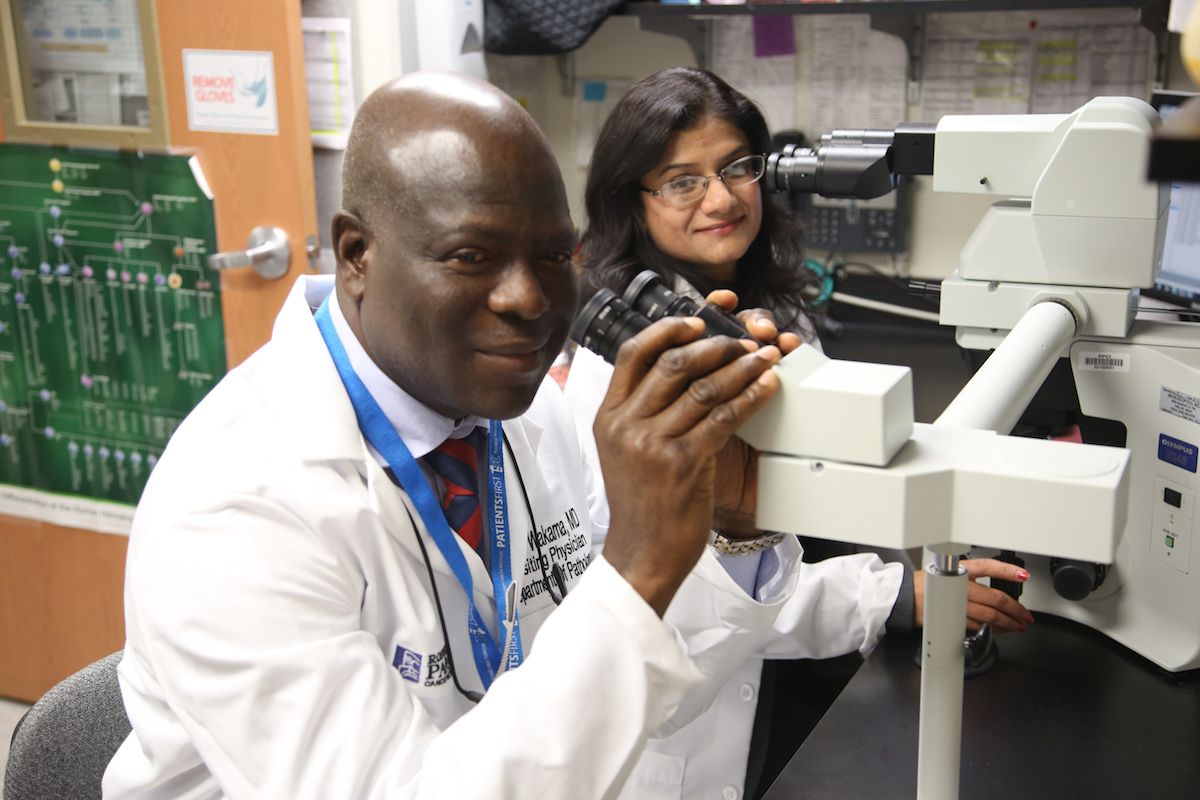In many parts of the world, a diagnosis of cancer can be delayed for weeks, with serious and sometimes life-threatening consequences for the patient, due to a lack of expert pathologists and modern diagnostic equipment. Vishala Neppalli, MD, formerly of Roswell Park, has helped physicians from several countries create customized solutions for that problem.
Over the past four years, physicians from India, Nepal, Kashmir and Nigeria have traveled to Roswell Park for intensive training under the direction of Dr. Neppalli and her team. All the physicians were sponsored by the Visitor Training Program of the American Society of Hematology (ASH) program, which enabled them to focus on a specific need in their home countries in the field of hematologic (blood-based) cancers.
Dr. Neppalli’s challenge: to help them find ways to deliver accurate diagnoses using the materials and facilities they have back at their home centers. “They all have different needs,” she says.
“Most often, diagnostic problems are related not just to knowledge gaps, but also lack of coordination among all the tests and professionals involved in the process. Problems also occur due to misuse or overuse of diagnostic tests, especially in a rapidly changing medical technology environment.”
Never miss another Cancer Talk blog!
Sign up to receive our monthly Cancer Talk e-newsletter.
Sign up!Through the American Society of Hematology / Health Volunteers Overseas program, Dr. Neppalli also contributes her expertise (long distance) to a monthly conference in Arequipa, Peru, focusing on difficult-to-diagnose cases of lymphoma and leukemia. In August 2018 she spent two weeks of her vacation working with oncologists and hematopathologists (doctors specializing in the diagnosis of blood-based diseases) at Hospital Nacional Carlos Alberto Seguín Escobedo de EsSalud in Arequipa, Peru.
These opportunities provide inspiration. “We’re in an environment of change, too,” she says. “How can we adopt new practices in medicine? How can we do things better, use our limited resources effectively and efficiently, and streamline procedures to accommodate the latest advances in patient care?”
While interacting with colleagues from other countries, “not only are we teaching them, but we’re learning from them as well,” she adds. “Ideas, knowledge and creativity flow in both directions. It is a humbling experience for any physician to work in a challenging healthcare delivery system while still putting patients first.
“It makes me acutely aware of how we can best serve our own patients at Roswell Park.”
